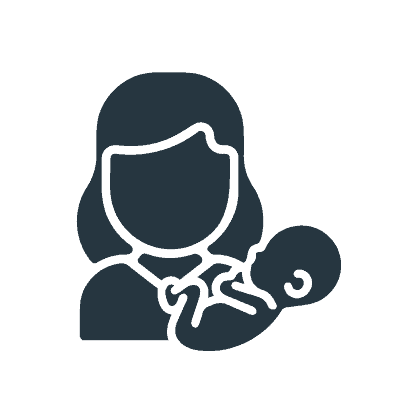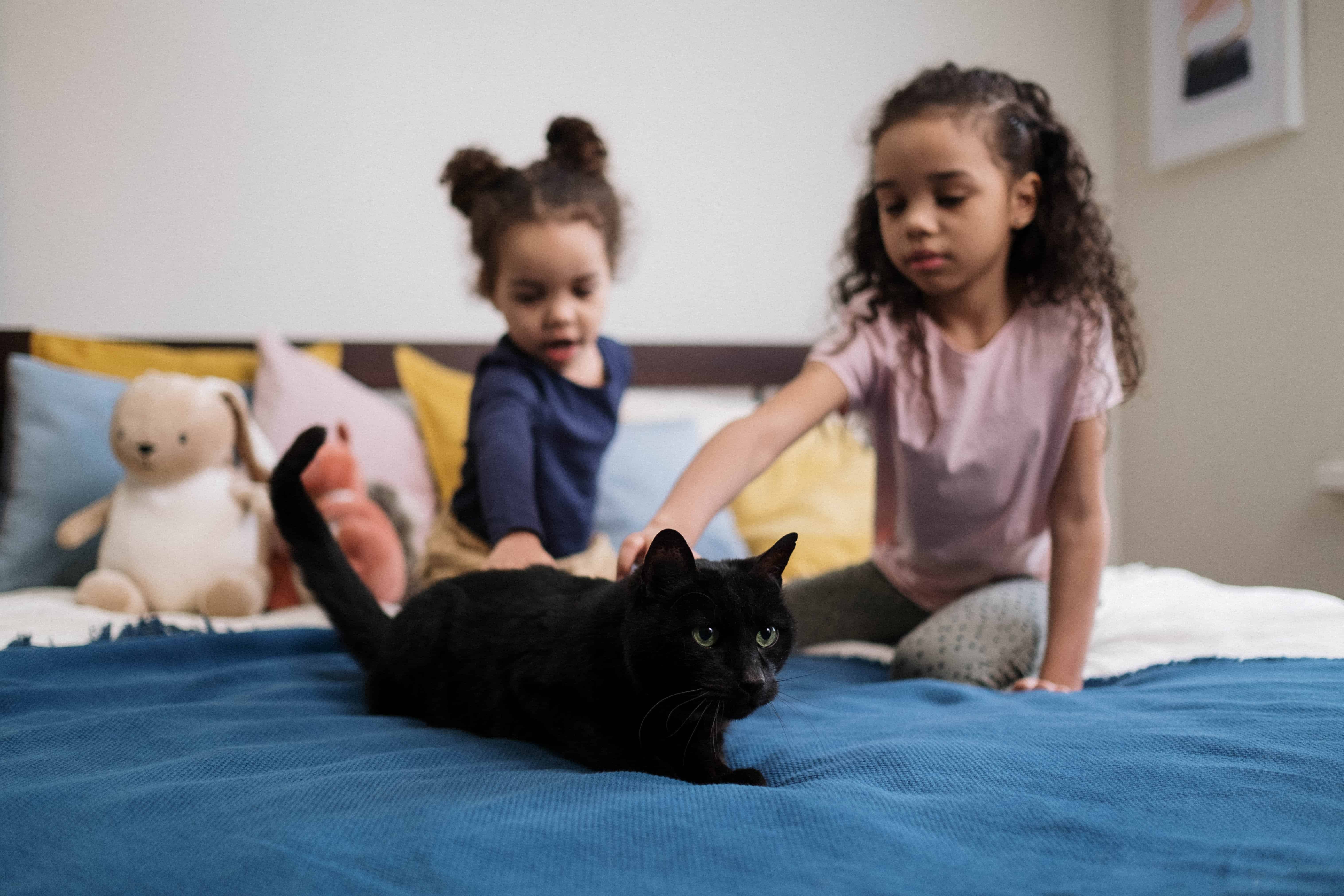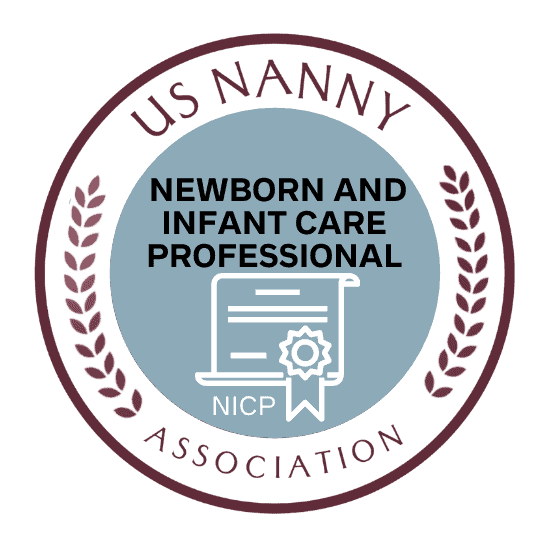Start Date: Enrolling Now
Total Hours: 17
Total Cost: $549
Prerequisite Courses: None
Newborn and Infant Care Training & Certification

Many parents seek Newborn and Infant Care Specialists (NICS) to help navigate the first year. Newborn care specialists primarily work during the first 6 months of a child’s life and infant care specialists help families learn best practices and help establish schedules through the first 18 months.
The Newborn and Infant Care curriculum focuses on child safety, development, common medical issues, nutrition, sleep and general care. Our curriculum is comprehensive providing training on music and reading for mental development as well as teaching physcial care.
This program is online (17-20 hours) and designed for those seeking work as a newborn and infant care specialist, consultant or overnight nanny. The Newborn and Infant Care program is a separate program from the Basic to Professional curriculum.

Who Should Enroll?
The Newborn and Infant Care program is designed for childcare providers who work with newborns and infants. The program provides training and resources to support families with a new baby.
What Topics are Covered?
- Infant attachment
- Newborn Care
- Childhood Health
- Baby Sign Language
- Multiples and Siblings
- Sleep Training
- Safety in the Home
- Emergency management
- Payroll & taxes
- Work agreements
Who are the instructors?
The Nanny Institute has 30+ faculty members who are experts as all our faculty have advanced degrees, at least 5 years of experience and a passion for child care. We invested in the right people to build and teach our curriculum so you learn from pediatricians, early childhood educators and child psychologists, many of whom were former nannies.
Newborn and Infant Care Certification Requirements
The Nanny Institute Newborn and Infant Care program is 17 hours of online classes (and 3 optional hours) that you watch on-demand. While watching the courses, you complete the provided study guides which prepare you for the multiple choice exam. You can enroll online at any time and start right away.
When the program is completed, you earn a Nanny Institute Newborn Care Certification and get a transcript that lists the program courses. If you complete all 20 hours, you will meet the training requirements for the US Nanny Association’s Newborn Care and Infant Professional (NCIP) credential.
We have many programs that will align with your career goals. Please see our program overview page to see the different options available.
What is the Class Structure?
Each class is an on-demand video by our faculty and every class has a study guide that you download. You complete the study guide as you watch the course. After each course, there is a short quiz to test your understanding of the course material. The study guide and quiz prepare you for the multiple choice exam at the end of the program. The assignments and proficiency requirements (quizzes & exams) in addition to a comprehensive curriculum and college faculty are the foundation for the Nanny Institute to issue Certifications, not certificates of attendance.

How Do I Get Certified?

1. Sign Up For A Program
Choose from one of our learning programs that will meet your needs.

2. Attend The Online Courses
Our online courses are taught by industry experts.

3. Earn A Certification
At the end of the program, you will take a multiple choice exam that will test your knowledge.
What Courses are in the Newborn and Infant Certification?
CC 101: Understanding Children by Dr. Lauren Formy-Duval (2 hours).
CC 102: Children and the Law by Aaron Brandel, JD (1 hour).
CC 201: Newborn Care by Dr. Tali Berkovitch (2 hours).
CC 205: Children and Literacy by Christine Ducz, MA (1 hour).
HS 202: Childhood Health by Dr. Alexandra Murr (1.5 hours).
CC 303: Advanced Newborn Care by Dr. Tali Berkovitch (1.5 hours).
CC 305: Children and Music by Dr. Beth Stutzmann (1 hour).
CC 404 Baby Sign Language by Jena Paulo, MS (0.5 hour).
CC 405: Multiples and Siblings by Kathryn Gonsalves, MA (0.5 hour).
HS 501: Sleep Training by Andrea Malson, NP (1 hour).
HS 103: Water Awareness by Elizabeth Malson, MS (1 hour).
HS 104: Food Safety by Dr. Jennifer Rodriquez-Bosque (1 hour).
GE 101: Professionalism by Karli Ortmann, MA (1 hour).
HS 101: Emergency Planning by Elizabeth Malson, MS (1 hour).
HS 102: Safety in the Home by Marlene Malson, MS (1 hour).
All Nanny and Sitter Courses are Taught by Child Care and Academic Experts
Meet Our Amazing Faculty
Frequently Asked Questions
Are there financial payment plans, discounts or sales?
The Nanny Institute allows you to make $299 payments over time by purchasing each level separately. This allows students to pay for 10 hours of class at a time.
The Nanny Institute also offers scholarships, when available. While businesses can offer payment programs, discounts and sales, the Nanny Institute is a career college and adheres to the Department of Education requirements. Licensed post-secondary schools must comply with 6E-1.0032(7), F.A.C which states, “Tuition or fee discounts are not permissible.”
Can I watch the classes on my phone?
Yes. You can download the SAP Litmos app and log in to your student portal on your phone. Each class has a study guide that can be completed so you may want to download or print the study guide from a computer prior to watching the class on your phone.
I am not living in the United States and I am not a US citizen, can I enroll?
Yes, you can enroll online and complete the program from any location in the world. Job placement services; however, are only available to those living in the United States.
You do not need to be a United States citizen but you must upload a copy of a government-issued identification from any recognized country to verify your identity.
Do these programs count for the US Nanny Association Certifications?
Yes. All programs (Basic, Intermediate, Advanced, Specialist and Professional Childcare, Newborn Care Specialist and eLearning Facilitator) are accepted by the US Nanny Association for the training requirements to earn the Nanny and Childcare Provider (NCP) Credential. The Newborn Care is accepted by the US Nanny Association for the training requirements for the Newborn and Infant Care Professional (NICP). The Professional Childcare program is accepted by the US Nanny Association for the training requirements to earn the Professional Nanny and Childcare Provider (PNCP) Credential.
The US Nanny Association and the Nanny Institute are separate entities. Like many childcare businesses, the Nanny Institute is an organization member of the US Nanny Association.
What are the enrollment requirements?
Enrollment requires students to be at least 18 years old and have a government-issued identification (from any recognized country). Students sign up online by paying the tuition and fees, then immediately checking their email SPAM or Junk folder to access and log in to their student account. Students must sign an Enrollment Agreement and upload a copy of government-issued identification. Within 30 minutes of signing the paperwork and confirming the student’s identity, the classes will unlock in the student’s account and they can begin the program.
Will I need to buy textbooks?
No, all the course materials are available online and included in the tuition and fees. Every course has a study guide that can be downloaded and used to capture notes from the course. these study guides create a textbook that you can keep. The materials are for personal use only. All course videos and resources are copyrighted and cannot be used for any business purpose.

Need Help Staying on Track?
Download Litmus App
The Nanny Institute proudly uses Litmos as our eLearning partner. Litmos Mobile makes learning more accessible for you by ensuring you can access all your eLearning courses via your smartphone. With this app, you can easily search for your organization’s learning content and access it anytime, anywhere. With this app, students gain flexibility, have greater engagement and course consumption. This app requires an active Litmos account which is your US Nanny Institute username and password.


